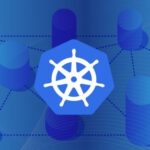A virtual private network (VPN) is a private network that extends across a public network or the Internet. It enables users to send and receive data across shared or public networks as if their computing devices were directly connected to the private network. A VPN connection provides users with greater privacy, security, and anonymity when accessing the internet.
A VPN creates a secure tunnel between two or more computers over the internet. This tunnel encrypts data as it travels from one computer to the other, making it virtually impossible for third parties like hackers, governments, and ISPs to monitor or access the data being transferred.
The most common uses of a VPN are to protect data while it is being sent and received, bypass censorship, and hide IP addresses or locations. VPNs can also be used to bypass geographical restrictions, such as streaming services that are not available in the user’s geographic region. The VPN encrypts data before it leaves the device, masking the user’s identity and location, and making the user appear to be in a different country or region.
Regardless of the desired use, when using a VPN, the user must trust the provider of the VPN to properly establish a secure and private connection. Additionally, the user should always verify that the VPN service they are using is reputable and secure before logging into sensitive services.
Benefits
When it comes to using the internet, it’s important to ensure that your data is secure. A Virtual Private Network (VPN) provides a secure connection that can help protect your privacy and provide access to blocked content. Here are a few of the top benefits of using a VPN.
- Secured Online Browsing: A VPN encrypts traffic so it can’t be viewed by third parties. This means that your browsing sessions and passwords are safe from hackers, malicious websites and other cyber threats.
- Access to Blocked Content: Some websites and services are blocked in certain countries or regions. With a VPN, you can connect to servers located in other areas to access restricted content.
- Unrestricted File Sharing: A VPN can help you bypass file-sharing restrictions, allowing you to access and share files without worry.
- Increased Security on Public Wi-Fi: When you’re connected to a public Wi-Fi network, your data can be intercepted by anyone else connected to the same network. By using a VPN, your data is encrypted so others can’t view it.
- Protect against Tracking: Advertisers, internet service providers and other third parties track your online activities. With a VPN, all of your communication is encrypted so your activities are hidden from prying eyes.
Overall, a VPN is a great tool for keeping your information secure and accessing restricted content. With the right VPN provider, you can enjoy these benefits and more.




